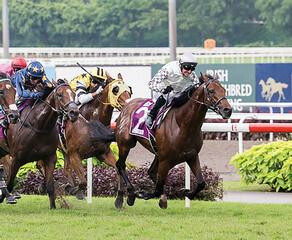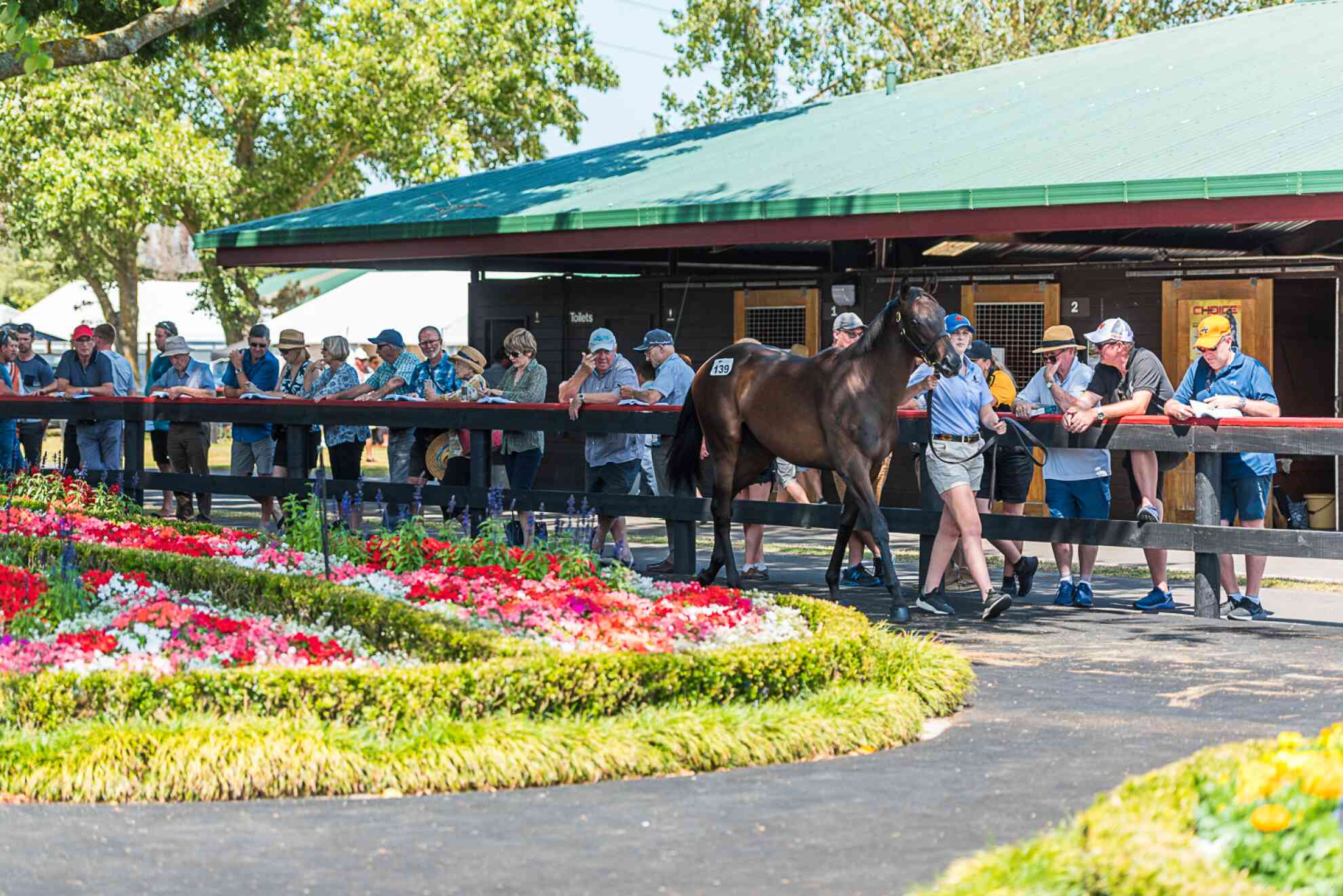Changes Afoot in Singapore
21 September 2017

It’s been a significant year for racing in Singapore, the Singapore Turf Club welcomed a new CEO, Laurie Laxon called time on his career there while fellow Kiwi Mark Walker is well placed to claim his second Singapore Premiership.
A five-time premiership winner in New Zealand, Walker opened Te Akau’s Singapore stable in 2010 and claimed his first premiership there in 2015.
“At the moment the horses are flying, our riders are riding in great form and we’ve got great staff. Everything is gelling at the moment,” said Walker.
“If you get horses in the right grade at the right time, you can have a really good run and that’s what happened with us.”
It’s no surprise that his allocated box allowance of 60 horses is full, mainly with horses from his homeland, which he prefers.
“We have horses in Singapore sourced from all around the world, but the New Zealand-breds far perform beyond the norm. They are brought up naturally, not fed up to be too big as young horses and because of that there’s not the same pressure on their joints and they are so sound,” said Walker.
“And they are the best value for money as well. Karaka is always the best buying. You don’t have to spend the earth to get a top-class horse. You only have to look at a horse like War Affair who has been a top performer up here. Dave [Ellis, Te Akau boss] only paid $70,000 for him at Karaka.”
New Zealand-bred horses won 42 per cent of all races in Singapore last season, while War Affair (NZ) (O’Reilly), now in the care of another Kiwi trainer in Bruce Marsh has won almost S$3 million in prizemoney.
71-year-old Laxon, who won nine premierships in the 17 years he was domiciled in Singapore, also had great success buying horses out of New Zealand.
“There’s good horse people in New Zealand that you can send the horses to for education, to be broken-in, pre-trained and trialled,” said Laxon.
“It’s also easy to get the horses from New Zealand to Singapore as opposed to from Australia. If you buy a horse in Australia you have to send it to quarantine in Melbourne for three weeks. In New Zealand, they just hop straight on the plane and do two weeks’ quarantine when they get to Singapore. So, it’s more economical and logistically easier too.”
Singapore, like most racing nations, is facing a battle for relevance in the changing climate of the sports, wagering and entertainment landscapes.
However, both Laxon and Walker agree that there are positive signs for the future especially with new initiatives brought by the appointment of new CEO Chong Boo Ching.
“He’s put a bit of spark back into the club,” Walker said.
“Racing here had gone through a bit of a flat spot when the international races went but there are good ideas coming out of the head offices and new incentives with better prizemoney.”
